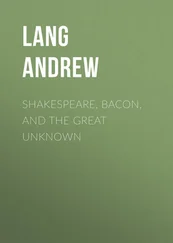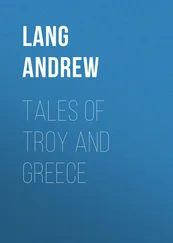Andrew Lang - Cock Lane and Common-Sense
Здесь есть возможность читать онлайн «Andrew Lang - Cock Lane and Common-Sense» — ознакомительный отрывок электронной книги совершенно бесплатно, а после прочтения отрывка купить полную версию. В некоторых случаях можно слушать аудио, скачать через торрент в формате fb2 и присутствует краткое содержание. Жанр: foreign_antique, foreign_prose, на английском языке. Описание произведения, (предисловие) а так же отзывы посетителей доступны на портале библиотеки ЛибКат.
- Название:Cock Lane and Common-Sense
- Автор:
- Жанр:
- Год:неизвестен
- ISBN:нет данных
- Рейтинг книги:4 / 5. Голосов: 1
-
Избранное:Добавить в избранное
- Отзывы:
-
Ваша оценка:
- 80
- 1
- 2
- 3
- 4
- 5
Cock Lane and Common-Sense: краткое содержание, описание и аннотация
Предлагаем к чтению аннотацию, описание, краткое содержание или предисловие (зависит от того, что написал сам автор книги «Cock Lane and Common-Sense»). Если вы не нашли необходимую информацию о книге — напишите в комментариях, мы постараемся отыскать её.
Cock Lane and Common-Sense — читать онлайн ознакомительный отрывок
Ниже представлен текст книги, разбитый по страницам. Система сохранения места последней прочитанной страницы, позволяет с удобством читать онлайн бесплатно книгу «Cock Lane and Common-Sense», без необходимости каждый раз заново искать на чём Вы остановились. Поставьте закладку, и сможете в любой момент перейти на страницу, на которой закончили чтение.
Интервал:
Закладка:
Andrew Lang
Cock Lane and Common-Sense
TO JAMES PAYN, Esq
Dear Payn,
Spirits much more rare and valuable than those spoken of in this book are yours. Whatever ‘ Mediums ’ may be able to do , you can ‘ transfer ’ High Spirits to your readers ; one of whom does not hope to convert you , and will be fortunate enough if , by this work , he can occasionally bring a smile to the lips of his favourite novelist.
With more affection and admiration than can be publicly expressed,
Believe me,
Yours ever,
ANDREW LANG.
PREFACE
Since the first publication of Cock Lane and Common-Sense in 1894, nothing has occurred to alter greatly the author’s opinions. He has tried to make the Folklore Society see that such things as modern reports of wraiths, ghosts, ‘fire-walking,’ ‘corpse-lights,’ ‘crystal-gazing,’ and so on, are within their province, and within the province of anthropology. In this attempt he has not quite succeeded. As he understands the situation, folklorists and anthropologists will hear gladly about wraiths, ghosts, corpse-candles, hauntings, crystal-gazing, and walking unharmed through fire, as long as these things are part of vague rural tradition, or of savage belief. But, as soon as there is first-hand evidence of honourable men and women for the apparent existence of any of the phenomena enumerated, then Folklore officially refuses to have anything to do with the subject. Folklore will register and compare vague savage or popular beliefs; but when educated living persons vouch for phenomena which (if truly stated) account in part for the origin of these popular or savage beliefs, then Folklore turns a deaf ear. The logic of this attitude does not commend itself to the author of Cock Lane and Common-Sense.
On the other side, the Society for Psychical Research, while anxiously examining all the modern instances which Folklore rejects, has hitherto neglected, on the whole, that evidence from history, tradition, savage superstition, saintly legend, and so forth, which Folklore deigns to regard with interest. The neglect is not universal, and the historical aspect of these beliefs has been dealt with by Mr. Gurney (on Witchcraft), by Mr. Myers (on the Classical Oracles), and by Miss X. (on Crystal-Gazing). Still, the savage and traditional evidence is nearly as much eschewed by psychical research, as the living and contemporary evidence is by Folklore. The truth is that anthropology and Folklore have a ready-made theory as to the savage and illusory origin of all belief in the spiritual, from ghosts to God. The reported occurrence, therefore, of phenomena which suggest the possible existence of causes of belief not accepted by anthropology, is a distasteful thing, and is avoided. On the other hand, psychical research averts its gaze, as a rule, from tradition, because the testimony of tradition is not ‘evidential,’ not at first hand.
In Cock Lane and Common-Sense an attempt is made to reconcile these rather hostile sisters in science. Anthropology ought to think humani nihil a se alienum . Now the abnormal and more or less inexplicable experiences vouched for by countless living persons of honour and sanity, are, at all events, human . As they usually coincide in character with the testimony of the lower races all over the world; with historical evidence from the past, and with rural Folklore now and always, it really seems hard to understand how anthropology can turn her back on this large human province. For example, the famous affair of the disturbances at Mr. Samuel Wesley’s parsonage at Epworth, in 1716, is reported on evidence undeniably honest, and absolutely contemporary. Dr. Salmon, the learned and acute Provost of Trinity College, Dublin, has twice tried to explain the phenomena as the results of deliberate imposture by Hetty Wesley, alone, and unaided. 1 1 Fortnightly Review , February 1866, and in a lecture, 1895.
The present writer examined Dr. Salmon’s arguments (in the Contemporary Review , August, 1895), and was able, he thinks, to demonstrate that scarcely one of them was based on an accurate reading of the evidence. The writer later came across the diary of Mr. Proctor of Wellington, near Newcastle (about 1840), and found to his surprise that Mr. Proctor registered on occasion, day by day, for many years, precisely the same phenomena as those which had vexed the Wesleys. 2 2 This diary was edited for private circulation, by a son of Mr. Proctor’s, who remembers the disturbances.
Various contradictory and mutually exclusive theories of these affairs have been advanced. Not one hypothesis satisfies the friends of the others: not one bears examination. The present writer has no theory, except the theory that these experiences (or these modern myths, if any one pleases), are part of the province of anthropology and Folklore.
He would add one obvious yet neglected truth. If a ‘ghost-story’ be found to contain some slight discrepancy between the narratives of two witnesses, it is at once rejected, both by science and common-sense, as obviously and necessarily and essentially false. Yet no story of the most normal incident in daily life, can well be told without some discrepancies in the relations of witnesses. None the less such stories are accepted even by juries and judges. We cannot expect human testimony suddenly to become impeccable and infallible in all details, just because a ‘ghost’ is concerned. Nor is it logical to demand here a degree of congruity in testimony, which daily experience of human evidence proves to be impossible, even in ordinary matters.
A collection of recent reports of ‘fire-walking’ by unscorched ministrants, in the South Seas, in Sarawak, in Bulgaria, and among the Klings, appeals to the present writer in a similar way. Anthropology, he thinks, should compare these reports of living witnesses, with the older reports of similar phenomena, in Virgil, in many books of travel, in saintly legends, in trials by ordeal, and in Iamblichus. 3 3 See essays here on Classical and Savage Spiritualism.
Anthropology has treasured the accounts of trials by the ordeal of fire, and has not neglected the tales of old travellers, such as Pallas, and Gmelin. Why she should stand aloof from analogous descriptions by Mr. Basil Thomson, and other living witnesses, the present writer is unable to imagine. The better, the more closely contemporary the evidence, the more a witness of the abnormal is ready to submit to cross-examination, the more his testimony is apt to be neglected by Folklorists. Of course, the writer is not maintaining that there is anything ‘psychical’ in fire-walking, or in fire-handling. Put it down as a trick. Then as a trick it is so old, so world-wide, that we should ascertain the modus of it. Mr. Clodd, following Sir B. W. Richardson, suggests the use of diluted sulphuric acid, or of alum. But I am not aware that he has tried the experiment on his own person, nor has he produced an example in which it was successfully tried. Science demands actual experiment.
The very same remarks apply to ‘Crystal-Gazing’. Folklore welcomes it in legend or in classical or savage divination. When it is asserted that a percentage of living and educated and honourable people are actually hallucinated by gazing into crystals, the President of the Folklore Society (Mr. Clodd) has attributed the fact to a deranged liver. 4 4 This was merely a cheerful obiter dictum by the learned President.
This is a theory like another, and, like another, can be tested. But, if it holds water, then we have discovered the origin of the world-wide practice of crystal-gazing. It arises from an equally world-wide form of hepatic malady.
Интервал:
Закладка:
Похожие книги на «Cock Lane and Common-Sense»
Представляем Вашему вниманию похожие книги на «Cock Lane and Common-Sense» списком для выбора. Мы отобрали схожую по названию и смыслу литературу в надежде предоставить читателям больше вариантов отыскать новые, интересные, ещё непрочитанные произведения.
Обсуждение, отзывы о книге «Cock Lane and Common-Sense» и просто собственные мнения читателей. Оставьте ваши комментарии, напишите, что Вы думаете о произведении, его смысле или главных героях. Укажите что конкретно понравилось, а что нет, и почему Вы так считаете.
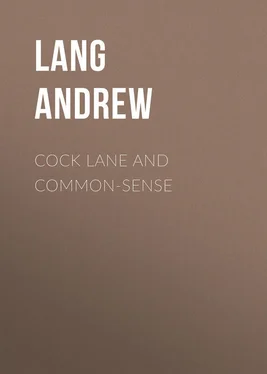

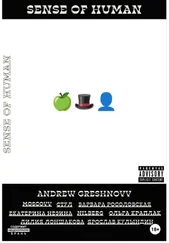
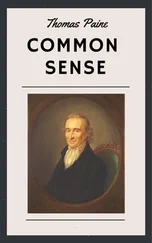
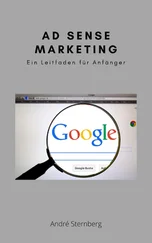


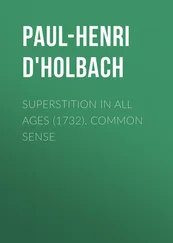
![Andrew Lang - XXXII Ballades in Blue China [1885]](/books/745214/andrew-lang-xxxii-ballades-in-blue-china-1885-thumb.webp)
